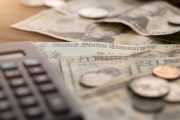
Lawmakers in the Texas House of Representatives unanimously passed a bill approving the establishment of a bullion depository, preparing the Lone Stare state’s bypass of the Federal Reserve’s exclusive control of currency.
House Bill 3169 was introduced in March by State Representative Giovanni Capriglione. Passed by the House May 4, it makes a multi-faceted assault on the Fed’s mismanaged money monopoly, including provisions for overseeing the depositing of “state money” and the setting of rates of exchange between precious metals stored in the facility and other currencies, including U.S. dollars.
Language in a state bill referring to U.S. dollars in a way that makes them sound like foreign currency, is refreshing as it represents an apparently sincere effort to sever the ties binding individual Americans to the boom-bust boondoggle that is the Federal Reserve.
It’s been nearly two years since Governor Greg Abbot signed into a law legislation authorizing a state gold bullion and precious metal depository. The ink wasn’t dry on the act before state agents accelerated the process of getting the depository fully functional.
Commenting on the crescendo of state attempts to abolish the Federal Reserve’s exclusive control of the money, economics professor William Greene laid out how the effort could successfully sink the Fed.
Over time, as residents of the State use both Federal Reserve Notes and silver and gold coins, the fact that the coins hold their value more than Federal Reserve Notes do will lead to a “reverse Gresham’s Law” effect,17 where good money (gold and silver coins) will drive out bad money (Federal Reserve Notes). As this happens, a cascade of events can begin to occur, including the flow of real wealth toward the State’s treasury, an influx of banking business from outside of the State (as citizens residing in other States carry out their desire to bank with sound money), and an eventual outcry against the use of Federal Reserve Notes for any transactions. At that point, the Federal Reserve system will have become unwanted and irrelevant, and can be easily abolished by the people’s elected Representatives in Washington, D.C.
Sound money is the tide that lifts all boats.
Undoubtedly, though, the Fed will do all it can to hold back this flood of financial freedom.
Of course, despite the obvious benefits of a return to sound money, the federal government will not sit idly by and watch its monopoly be rendered irrelevant by state governments. In a host of issues, the plutocrats on the Potomac have demonstrated that they will go to any length to maintain their monolithic economic status.
There is some precedence, though, for support of sound money from one branch of the federal government.
A brief recitation of the facts of the case of Lane County v. Oregon (1868) was provided by sponsors of a sound money bill in New Hampshire:
At the end of the 19th century in Oregon, the state was collecting its taxes in gold, requiring payments of taxes in gold. There was a taxpayer who claimed they could pay in Greenbacks, because Greenbacks were “legal tender for all debts.” The Supreme Court gave two reasons why the taxpayer was wrong:
1) A tax is not a debt, a tax is an involuntary contribution to the government.
2) But even if that weren’t true, a State is a quasi-sovereign entity. It does not have all the sovereign powers it had at the War of Independence, because some powers have been limited by the Constitution. But it retains sovereign powers in the areas of taxation, borrowing, spending, eminent domain and judgements in the courts.
Regardless of past decisions and sound reasoning, the federal government will not back down and Americans should not rely on the federal courts to sustain state sovereignty, principally as they have shown that they will not commit political suicide by weakening the power of those that give them power.
If any state authorizes gold and silver as an alternative to Federal Reserve notes, economists say that the economy of such a state would stabilize and increase. A happy side effect of such a system would be the weakening of the Federal Reserve notes and a strengthening of the appeal of gold and silver.
This genuine recovery would obliterate the fiat money monopoly exercised by the Federal Reserve. The history of that monstrosity was described most ably in G. Edward Griffin’s The Creature From Jekyll Island. Griffin writes:
The American Heritage Dictionary defines fiat money as “paper money decreed legal tender, not backed by gold or silver.” The two characteristics of fiat money, therefore, are (1) it does not represent anything of intrinsic value and (2) it is decreed legal tender. Legal tender simply means that there is a law requiring everyone to accept the currency in commerce. The two always go together because, since the money really is worthless, it soon would be rejected by the public in favor of a more reliable medium of exchange, such as gold or silver coin.”
And that is the key to restoring fiscal soundness to the once-enviable economy of the United States.
In 2008, Representative Ron Paul of Texas echoed Griffin’s predictions:
Gresham’s Law states that bad money drives out good money. Meaning, if someone is forced to accept your bad money, it is to your advantage to pass it off, like a hot potato, in exchange for something of value. Any good money you have, you will hoard. Eventually, real money is driven out of circulation and under people’s mattresses, so to speak. In the absence of legal tender laws, people are free to accept the medium of exchange of their choice, and are likely to insist on payment in something of real value.
The “creature” given life on Jekyll Island over a century ago was specifically designed to destroy competition, give a private banking cartel power over the income of Americans, and force Americans to use the Fed’s own notes as legal tender, despite the obvious constitutional and legal problems with that plan.
During its century-long reign over the financial wellbeing of our country, the Federal Reserve has manipulated our currency until it is nearly worthless. Meanwhile, Congress turns a blind eye and a deaf ear to the crisis and the calls to control it.
The fact is that since that day in 1913, the dollar has lost over 95 percent of its purchasing power. Most, if not all, of this precipitous decline was caused by the monetary policy of the Federal Reserve.
Adding insult to injury, during testimony to Congress in 2009, the-Chairman of the Federal Reserve Ben Bernanke refused to reveal to committee members the names of the institutions that received trillions of dollars in bailout money from the Fed. Later, he told our elected representatives that he would not disclose the identity of the foreign banks that were parties to sweetheart deals with the Federal Reserve.
When it comes to the central bank and its machinations, the fix is in. The Fed — ostensibly a non-profit organization — owns the mint, the money, and sets the terms of the loans it makes to the federal treasury. What’s more, there is no product; there is nothing being loaned other than worthless paper that can never be traded in for anything of value because all that is used to secure the worth of the currency is now owned by the very bankers who control the Federal Reserve.
And the Fed will continue to accumulate power. There is no limit to the lengths global bankers will go to in order to enslave the population of the world. There is no hope of regulating restraint. Power of this magnitude operates beyond the reach of regulations; in fact, that was the goal in its creation.
Texas is taking a stab at slaying the creature, restoring sound money, and paving a path of restoring financial freedom, a path that other states could follow.
The bullion bill will now go to the state Senate for that body’s consideration.



